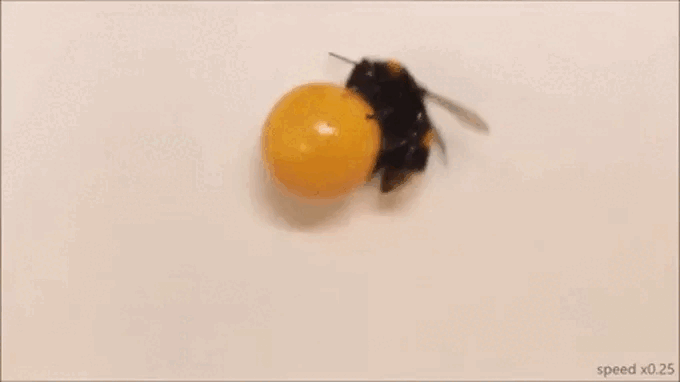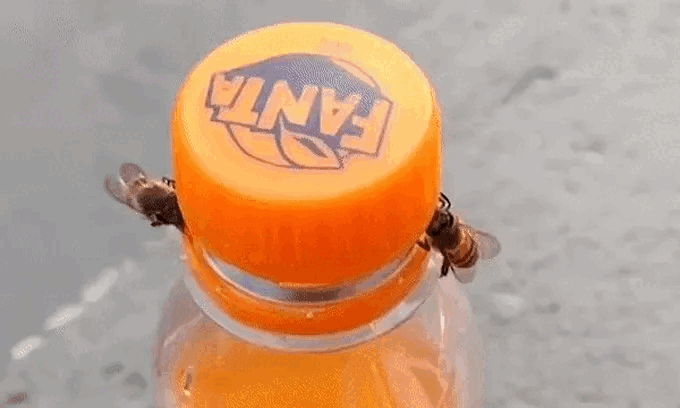A New Study Published in “Animal Behaviour” Reveals That Hornets Exhibit Playful Behavior with Objects for the First Time.
We have often witnessed dogs and cats playing with objects. However, the fact that insects can exhibit similar behavior is truly rare.
In an experiment conducted by scientists from Queen Mary University in London, hornets have for the first time demonstrated the behavior of “object play” clearly exhibited in an insect species.

Incredible experiment shows hornets “playing” with objects. (Photo: Animal Behaviour).
According to the study, they continuously attempted to roll wooden balls without any clear motivation or receiving any rewards.
An interesting point highlighted in the research is that younger hornets rolled more balls than older ones, and male hornets tended to roll balls longer than female hornets.
The study demonstrated that the hornets rolled the balls continuously without any training or receiving any rewards for doing so. This behavior is completely voluntary and spontaneous, similar to play behavior in other animal species.
“Clearly, hornets can actually experience a form of positive emotional state, similar to some higher animal species,” said Samadi Galpayage, the lead author of the study.

The species of hornet has been found to exhibit remarkable actions.
To reach their conclusion, researchers used 45 selected hornets to navigate a simulated obstacle-free path, with one side being a foraging area and the other containing wooden balls. After a period of acclimatization, the hornets showed particular interest in the balls, even though they had no purpose other than to play.
The research team stated: “The balls are not part of the hornets’ survival strategies, such as foraging for food, cleaning up messes, or mating… The experiment was also conducted under non-stressful conditions.”
Professor Lars Chittka at Queen Mary University emphasized that this research shows the insect mind may be much more sophisticated than we can imagine.
“This finding is significant for our understanding of the personality and emotions of insects,” Professor Chittka said. “We hope this research will encourage us to respect and protect life on Earth more than ever.”


















































